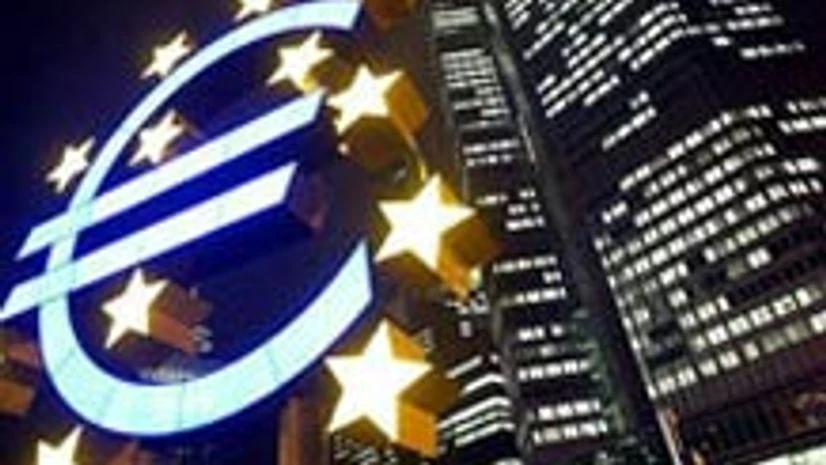European stocks slipped in thin trade on Monday after soft Chinese manufacturing data, while simmering tensions in Ukraine underpinned safe-haven government bonds and gold.
Portuguese bond yields edged to eight-year lows after Lisbon said on Sunday the country would make a clean exit from its bailout later this month.
Volumes were thinned by the closure of markets in London and Tokyo for public holidays.
At 0848 GMT, the euro zone's blue-chip Euro STOXX 50 index was down 1.36% at 3,134.55 points, after a survey showed activity in China's manufacturing sector contracted for a fourth consecutive month in April.
That added to signs the world's second-largest economy is still losing momentum and knocked Asian shares overnight.
"The crisis between Russia and Ukraine and the sluggish Chinese data which confirm a slowdown in growth are the two big negative catalysts for markets," said Lionel Jardin, head of institutional sales at Assya Capital in Paris.
More From This Section
"The only thing that prevents stocks from a bigger drop is this week's European Central Bank meeting and the hope that new measures could be unveiled."
MSCI's world equity index, which tracks shares in 45 countries, was 0.21% lower at 413.86.
Brent crude slipped in Singapore following the Chinese PMI, but later recovered as the rising tensions in Ukraine added to concerns about supplies. Brent for June delivery was 22 cents higher at $108.81 a barrel by 0843 GMT, after settling 83 cents higher on Friday.
Pro-Russian militants stormed a Ukrainian police station in Odessa on Sunday and freed nearly 70 fellow activists, two days after over 40 died in a blaze at a building they had occupied after clashes with pro-Kiev groups.
The events in Ukraine also helped gold jump although investors said gains might not be sustained as outflows from the top gold fund continued to indicate bearish sentiment.
Gold was $13 higher at $1,313 an ounce, its highest since April 15, after gaining over $14 on Friday.
The safe-haven yen rose to a two-week high of 101.86 yen against the dollar, while the euro was steady at $1.3875.
"There is risk aversion that is keeping the yen supported," said Niels Christensen, FX strategist at Nordea in Copenhagen.
"Also the dollar has been weighed down by the US data (from Friday) which shows wages are not growing fast enough to trigger worries about inflation. As a result, tightening by the Fed is a some way off and that is not helping US yields."
A sharp rally in longer-dated Treasuries in recent weeks has led to a marked flattening of the curve, with yields on 30-year paper diving to 10-month lows on Friday.
The skimpy yields have undermined support for the dollar, which failed to sustain a post-payrolls rally on Friday.
German 10-year yields have also fallen and were steady around 11-month lows of 1.45% as markets eyed the European Central Bank's policy meeting on Thursday. The Bund future was 4 ticks higher on the day at 144.84.
The ECB is widely expected to keep monetary policy on hold after a tick-up in euro zone inflation last month but could adopt new stimulus measures later this year to support fragile growth in the 18-country currency bloc.
Portugal's 10-year bond yield fell to 3.62%, its lowest since 2006, after the government said it would exit its bailout this month without a back-up loan.
The yield had neared 17% at the height of the debt crisis in 2012, and the country was seen at high risk of default as recently as two years ago.
"It's a bold move by Portugal to move out without asking for a precautionary credit line but the government is confident that it can get funding from the market," said ING strategist Alessandro Giansanti.
Lisbon's PSI 20 stock index was 0.79% lower by 0845 GMT, after surging 15% year to date.

)
